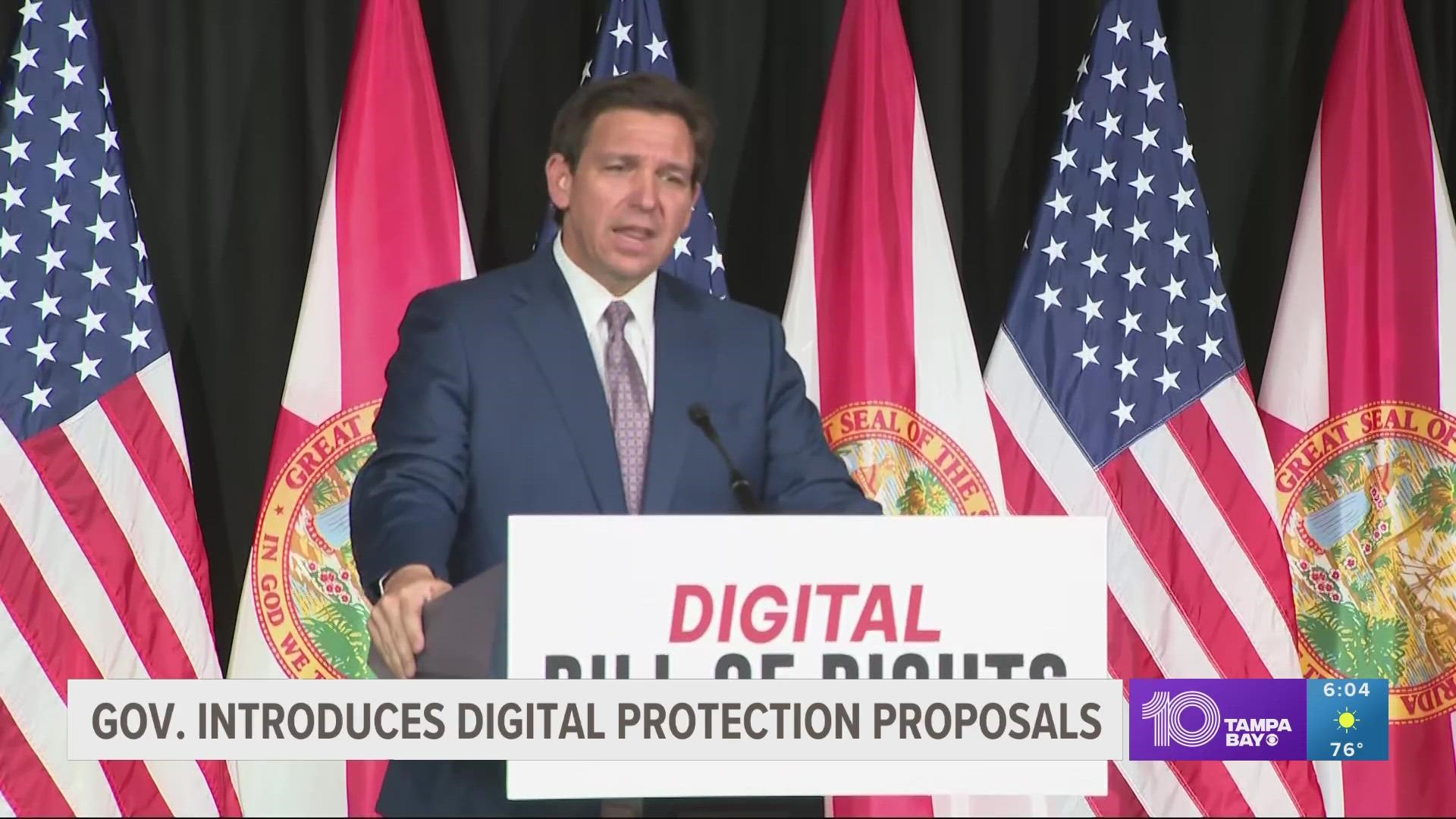TALLAHASSEE, Fla. — During a news conference in West Palm Beach Wednesday, Gov. Ron DeSantis announced a proposal to protect Floridians' digital rights and privacy from Big Tech companies.
The proposal DeSantis is calling the "Digital Bill of Rights," will also protect minors from online harm and eliminate what the governor is referring to as unfair censorship.
"The proposal also bans the use of TikTok and other social media platforms with ties to China from all state government devices, and through internet services at colleges, universities, and public schools, and prohibits state and local government employees from coordinating with Big Tech companies to censor protected speech," a news release from DeSantis' office reads.
The proposal will go before the legislative session that begins in March. DeSantis said the Digital Bill of Rights will ensure protection for people including your right to privacy, data sharing and location services among other items.
"Today’s proposal builds on our efforts to stop Big Tech censorship and combat the malign influence of China through the removal of nefarious platforms like TikTok from any state supported activity," DeSantis said in a statement.
Attorney General Ashley Moody and Department of Law Enforcement Commissioner Mark Glass spoke alongside DeSantis in West Palm Beach.
"Big Tech has gone unchecked for too long and has been reckless with our data, causing major concerns about privacy and potentially jeopardizing sensitive state information," Moody said in a statement.
"The Governor’s proposed Digital Bill of Rights is an important initiative that impacts so many citizens,” Glass also said in a statement. "This tremendous tool will empower Floridians to fight back against fraud online, to ensure that the information they receive is really what it seems, and to protect their children from malicious actors."
DeSantis hopes the proposed legislation will build on previous legislation he signed in 2021 "that required social media companies to be transparent about their content moderation practices."

